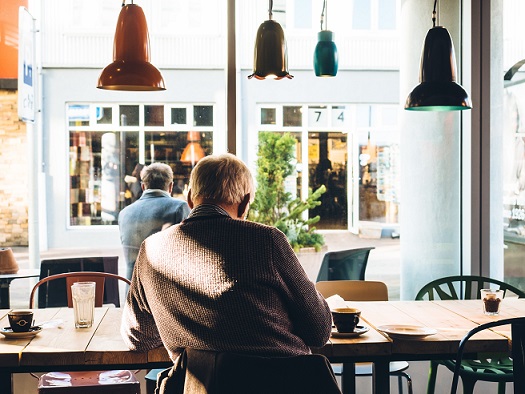Contribute
| Seniors And Arthritis: Ayurvedic And Modern Approaches For Senior Care |
Chrissy Jones
12/11/2019
Seniors and Arthritis: Ayurvedic and Modern Approaches for Senior Care An average of 24% of elderly people living in New England have arthritis, according to the CDC. With the weather in New England being generally cold and temperate, it’s critical that families with elders have plans for immediate and long-term senior care. Indian communities have an added benefit of having not only modern but Ayurvedic approaches to provide proper care. So what types of approaches can help seniors with their arthritis? Home Modifications Arthritis makes joints inflamed, which makes it difficult to move and do menial tasks like bathing, cooking, and even standing or sitting, according to the Arthritis Foundation. A great way to provide suitable care for seniors with arthritis is to do effective home modifications. Simple yet effective methods include installing slip mats on stairs and other slippery areas. Adding a stool or chair in any bathing area can help seniors maintain self-sufficiency and dignity. If the home is a multi-level one, doing simple changes like installing the older in the ground floor rooms help keep them from the challenge of going up and down any stairs. Natural Supplements and Treatments A more traditional approach to caring for elders with arthritis involves tapping into Ayurvedic medicine. Traditional supplements and treatments greatly benefit seniors that need to feel an existing connection to their Indian roots. Ayurvedic treatments often involve using hot water fermentation that can help soothe joints and ease pain, says Dr. Dhanvantri Tyagi. Common herbs and spices used are curcumin, ginger, ashwagandha, and many more. Using traditional medicine in conjunction with professional medical advice can help seniors feel heard and culturally respected. Anti-Inflammatory Medication If traditional medicine does not seem to be 100% effective, there are modern medical options that can be pursued to provide suitable senior care. Some of these include anti-inflammatory drugs that can be obtained over the counter like Advil or Aleve. For more extreme cases, there are powerful medications like Anti-TNF and B-cell Inhibitors. These should only be used under strict medical supervision and instruction. Anti-inflammatory medications are quick-acting which helps to provide immediate relief to more painful flare-ups. Diet Adjustment One point where modern medicine and Ayurvedic teaching coincide is the need for diet adjustments. Modern medicine provides a clear list of foods that may trigger flare-ups in joints. Ayurvedic medicine has a general outline of what sort of food to avoid, like, overly spicy foods or alcoholic drinks. It will, however, recommend more soups and rice meals with barley as it may promote the lightness of the body. The intake of food that’s rich in fiber is something that both modern and Ayurvedic medicine agree upon. A combination of both methods allows more options for seniors to choose from so that they may be more involved in their own care. Caring for family members is deeply embedded within Indian culture. So it wouldn’t be surprising if families already have existing plans to help care for their elderly. Seniors may not be as completely accepting of new ways so it always pays to make room for established traditional approaches. What’s important to take away from both cultural and modern methods is that balance is necessary.![]()
You may also access this article through our web-site http://www.lokvani.com/
